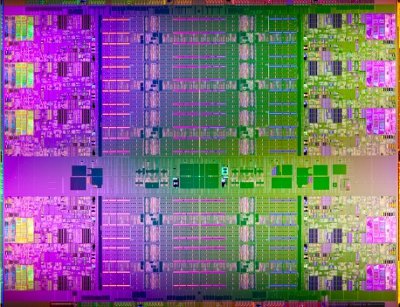Intel's announcement of the launch of the newest-generation Xeon processors (codenamed Westmere-EX) was followed by a flurry of new-server announcements by major vendors who had expanded their product portfolios with systems based on the new Xeon E7 processor families.
Click here to read our exclusive interview with Rory McInerney, VP of the Intel Architecture Group, on the company's expectations for the new chips
Kirk Skaugen, VP and general manager if the Intel Data Center Group, said in a statement that the new processors were once again "raising the bar" on economics of mission-critical computing.
"The industry momentum we're seeing for this new server processor architecture is unparalleled in Intel's history," he said. "The days of IT organizations being forced to deploy expensive, closed RISC architectures for mission-critical applications are nearing an end."
Vendors that have announced new products include HP, Dell, Oracle and Cisco, although Cisco announced its new systems at the end of March.
HP adds four ProLiant G7 systems
HP added four servers based on the new chips to its ProLiant G7 portfolio and said the systems offered up to a 40% performance improvement over the company's previous-generation products.
The new ProLiant BL680c G7 and DL580 G7 are based based on Xeon E7-4800 family processors, and ProLiant BL620c G7 and DL980 G7 are based on E7-2800 and E7-4800 family processors.
In addition to improvements in memory performance, system availability, post-error recovery and security, the new servers feature new energy-efficiency features. They include decreased memory power requirements with 1.35V low-voltage DIMMs;lower-power Intel Scalable Memory Buffer saves up to 155 watts per 256GB of memory.
Other energy-efficiency improvements are lowered active and idle states through Intel Intelligent Power Technology and reduced power consumption through HP's Thermal Logic technologies.
Dell expands PowerEdge portfolio
Dell expanded its four-socket PowerEdge server portfolio with three systems based on Xeon E7 chips, bringing the size of the portfolio to six products.
The new PowerEdge R910 is a 4U server, carrying four processors and up to 64 DIMM slot for memory, redundant power supplies and an embedded hypervisor. Dell's PowerEdge M910 is a high-performance blade that can support up to 32 DIMM slots.
The third new PowerEdge server is the 2U R810, available as either a two-socket or a four-socket system. Its capability to enable two processors to access up to 32 memory DIMM slots gives the two-socket version memory capacity of a four-socket server, but with software licensing costs of a four-socket machine.
Oracle previews new Sun Fire server
Oracle promises its upcoming Sun Fire X4470 M2 server, based on the Xeon E7 processor family, to provide 39% overall system-performance improvements over its previous-generation systems. The severs will come standard with the company's Linux and Solaris operating systems and its VM for x86 virtualization platform.
The company's Sun Fire x86 servers are at the core of its large-scale systems Exadata Database Machine and Exalogic Elastic Cloud.
Cisco builds four new UCS servers around Xeon E7 chips
Cisco announced its new Unified Computing System servers on 30 March. All four new products carry the new Xeon processors. New UCS products included C260 M2, C460 M2, B230 M2 and B440 M2.

